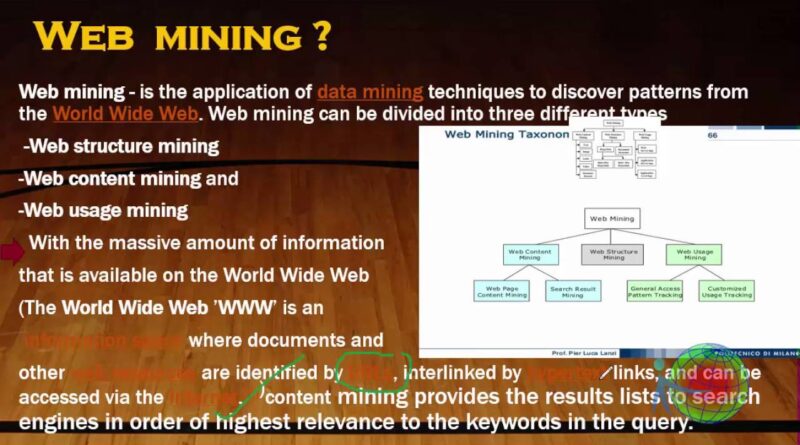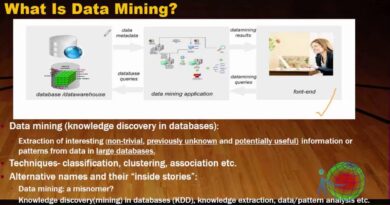Advance Search Engines with it’s complete architecture diagram and list of internet search engines
Advance Search Engines with it’s complete architecture diagram and list of internet search engines
Contents
- 0.0.1 Advanced Search Engines: Architecture & List of Search Engines
- 0.0.2 1. Architecture of a Search Engine
- 0.0.3 (A) Web Crawling (Data Collection)
- 0.0.4 (B) Indexing (Database Creation)
- 0.0.5 (C) Query Processing & Ranking (Search Results Generation)
- 0.0.6 2. Search Engine Architecture Diagram
- 0.0.7 3. List of Popular Search Engines
- 0.0.8 General Search Engines
- 0.0.9 Privacy-Focused Search Engines
- 0.0.10 Specialized Search Engines
- 0.0.11 Dark Web Search Engines
- 0.0.12 Conclusion
- 1 🔍 Advanced Search Engines – Complete Architecture & Examples
Advanced Search Engines: Architecture & List of Search Engines
Search engines are powerful tools used to retrieve information from the World Wide Web (WWW). They use complex algorithms, crawling techniques, and indexing methods to deliver the most relevant results.
1. Architecture of a Search Engine
A modern search engine follows a structured 3-step architecture:
(A) Web Crawling (Data Collection)
-
Crawlers or Spiders browse the web and collect web pages.
-
The robot.txt file on websites controls what the crawler can access.
-
Examples of web crawlers: Googlebot, Bingbot, Baidu Spider.
(B) Indexing (Database Creation)
-
The collected data is processed and stored in data centers.
-
Uses inverted indexing to map keywords to relevant web pages.
-
Meta tags, headings, and links improve search rankings.
(C) Query Processing & Ranking (Search Results Generation)
-
User enters a search query.
-
The search engine retrieves relevant pages from its index.
-
Ranking algorithms (like PageRank) prioritize results based on relevance.
2. Search Engine Architecture Diagram
Below is a simplified architecture of a search engine:
This cycle continuously updates the database and delivers fresh results.
3. List of Popular Search Engines
Here are some widely used search engines categorized by their functionality:
General Search Engines
Google – Most used, AI-based ranking (PageRank, RankBrain).
Bing – Microsoft’s search engine, integrates with Windows & AI tools.
Yahoo – Uses Bing’s search technology.
Baidu – The dominant search engine in China.
Yandex – Popular in Russia and nearby regions.
Privacy-Focused Search Engines
DuckDuckGo – No tracking, focuses on privacy.
StartPage – Uses Google results but ensures privacy.
Qwant – European search engine, respects user privacy.
Specialized Search Engines
Wolfram Alpha – Computational search engine for mathematical & scientific queries.
Ecosia – Environment-friendly, plants trees for every search.
Yippy – Focuses on clustering search results.
Dark Web Search Engines
Torch – Searches .onion websites.
Ahmia – Indexes Tor network sites.
Conclusion
Advanced search engines rely on crawlers, indexing, and ranking algorithms.
Google, Bing, and Yahoo dominate general web search, while DuckDuckGo and StartPage focus on privacy.
Specialized search engines like Wolfram Alpha provide unique capabilities.
Would you like details on SEO techniques or search engine ranking factors?
Here’s a detailed explanation of:
🔍 Advanced Search Engines – Complete Architecture & Examples
📘 What Are Advanced Search Engines?
Advanced Search Engines are web-based tools that help users locate information on the internet using advanced algorithms, indexing, and filtering methods. They support:
-
Keyword-based search
-
Boolean operators
-
Natural language queries
-
Image, voice, and video search
-
AI-powered personalization and semantic analysis
🧠 Key Functions of Advanced Search Engines
-
Crawling – Discovering web pages
-
Indexing – Storing content for fast retrieval
-
Ranking – Prioritizing results based on relevance
-
Query Processing – Analyzing user search intent
-
User Interface – Displaying results in readable format
-
Feedback Loop – Learning from user behavior
🏗️ Complete Architecture Diagram of a Search Engine
Here is a typical architecture (text-based description):
Components Explained:
| Component | Function |
|---|---|
| Crawler | Fetches pages from the web (web spider) |
| Indexer | Stores and organizes content into index tables |
| Query Processor | Interprets the user’s query |
| Index Lookup | Finds relevant documents quickly |
| Ranking Engine | Scores results based on relevance |
| Semantic Analyzer | Understands natural language |
| User Interface | Displays results with links/snippets |
| Feedback Loop | Tracks click-through, dwell time, etc. |
🌐 List of Popular Internet Search Engines (As of 2025)
| Search Engine | Developer | Specialty |
|---|---|---|
| Alphabet (Google LLC) | Most powerful, AI-driven search | |
| Bing | Microsoft | Integrated with Windows, AI features |
| Yahoo! Search | Powered by Bing | User-friendly, legacy platform |
| DuckDuckGo | DuckDuckGo Inc. | Privacy-focused |
| Yandex | Yandex (Russia) | Strong in Russian & Cyrillic search |
| Baidu | Baidu Inc. (China) | Leading search engine in China |
| Ecosia | Ecosia GmbH | Eco-friendly, plants trees per search |
| Startpage | Surfboard Holding | Anonymous search results (powered by Google) |
| Neeva (shut down consumer product) | Formerly AI-powered paid search | |
| You.com | AI-based customizable search engine | |
| Brave Search | Brave Software | Independent index, privacy-first |
| Mojeek | UK-based | Own search index, no tracking |
🔍 Advanced Search Techniques Supported
-
"exact match" -
site:example.com -
filetype:pdf -
intitle:keyword -
Boolean: AND, OR, NOT
-
Reverse image search
-
Voice search
-
AI-generated summaries (in modern engines like Google SGE, You.com)
🧠 Future Trends in Search Engines
-
AI summarization (Search Generative Experience – SGE)
-
Conversational search (Chat-based)
-
Multimodal search (image + text)
-
Context-aware results
-
Voice-first search (IoT + Smart devices)
Would you like me to:
-
📊 Generate a visual version of the architecture diagram?
-
📄 Provide a PDF or PowerPoint slide of this content?
-
🤖 Suggest AI-based custom search tools for research or coding?
Let me know!



